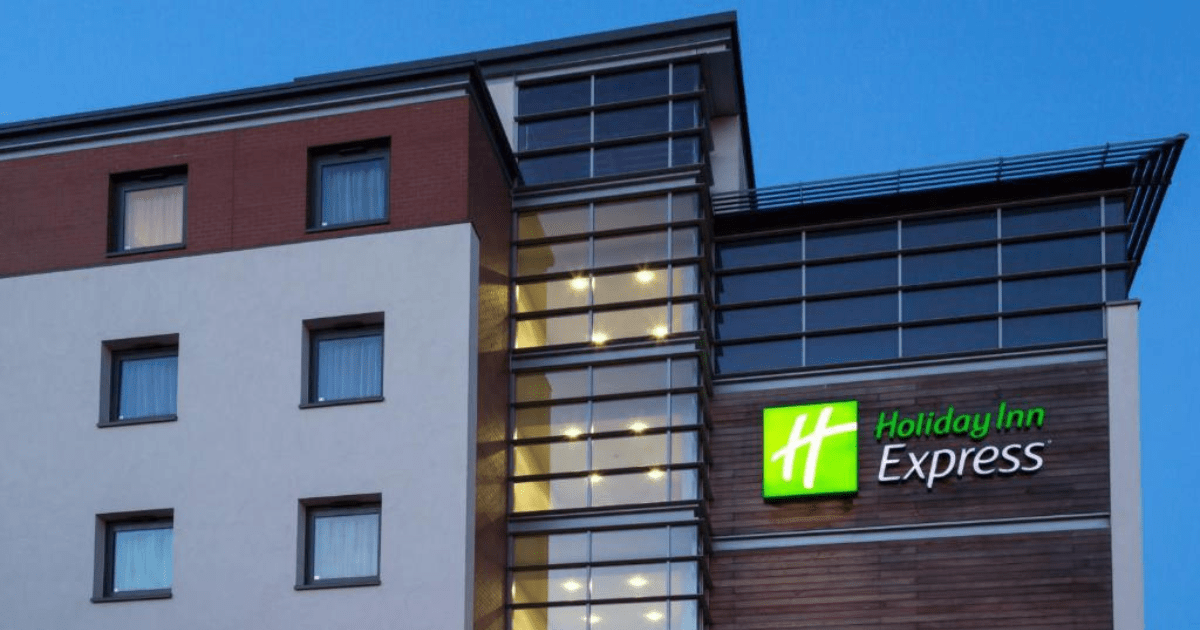Holiday Inn Franchise Guide to Smart Business Expansion

You’ve built a successful business with a winning formula. Now you’re staring at the growth ceiling – that painful moment when expansion demands either crushing debt or surrendering control. Every additional location means doubling your workload and your financial risk.
Franchising shatters all these limiting beliefs.
Take the Holiday Inn story, for instance – from a single roadside motel to over 3,000 locations worldwide, they didn’t just grow, they transformed an entire industry. This isn’t theoretical. The Holiday Inn franchise model has created wealth for thousands of entrepreneurs on both sides of the equation – the parent company and for individual franchise owners alike. Now imagine applying these same proven principles to your business!
In this guide, we’ll decode the blueprint that revolutionized the hospitality industry and show you how similar strategies could transform your own growth trajectory. If you’re tired of choosing between stagnation and unsustainable expansion, you’re about to discover the third option that successful businesses have leveraged for decades – franchising.
From a Single Motel Into a Global Brand
It all started with a bad road trip.
Kemmons Wilson was frustrated by the lack of consistent, quality lodging during a family vacation in 1952. Instead of complaining, he built something better. Two years later, the first Holiday Inn opened in Memphis, Tennessee, setting a new standard in the hotel industry: predictable, family-friendly service, modern amenities, and transparent pricing.
He didn’t know it at that time, but he had built more than just another hotel – it was the blueprint that would soon take the brand from local to global.
The Formula That Fueled Rapid Expansion
Wilson recognized that his business model had value beyond a single location. By 1956, he had begun franchising the Holiday Inn concept, allowing other entrepreneurs to operate their own locations while adhering to specific standards and systems. This decision accelerated growth without requiring Wilson to personally finance each new location.
Within a decade, they had expanded to over 500 locations, demonstrating the exponential growth potential of a well-executed franchise system. The brand’s success wasn’t just about the physical properties, it was about the standardized experience that travelers could rely on anywhere they went.
Innovation Within Structure: How Holiday Inn Continuously Evolved
The most dangerous myth about franchising is that it creates rigid, unchangeable business models, and the Holiday Inn franchise story demolishes this misconception. While maintaining the consistency customers craved, the brand continuously reinvented its approach, proving that a successful franchise system doesn’t just replicate success – it evolves and adapts as the world changes over time.
This approach delivered a critical competitive advantage. While independent hotels struggled to keep pace with changing consumer expectations, Holiday Inn franchisees benefited from systematic improvements that were developed, tested, and refined across the entire network as demographics, preferences and the overall market changed around them. This collective intelligence allowed individual owners to implement changes with confidence rather than relying on costly trial-and-error.
The Holidex Revolution: Technology at the Service of Growth
In 1965, Holiday Inn introduced a game-changing innovation: the Holidex reservation system. This technology allowed guests to make real-time bookings through a centralized system, accessing inventory across all franchise locations. At a time when most hotels relied on phone calls and paper ledgers, this digital approach created a significant competitive advantage. And for franchisees, it delivered even more benefits, such as:
- Increased booking efficiency and accuracy
- Reduced administrative workload
- Access to a broader customer base
- Improved inventory management
- Data-driven decision-making capabilities
Two years later, the system had evolved into a comprehensive reservations network with a central office handling nationwide bookings – a service that individual hotel owners could never have developed independently, especially in those pre-digital times.
Continuous Reinvestment and Modernization
In the 2000’s, Holiday Inn committed to a massive $1 billion rebranding initiative to meet shifting consumer expectations. It wasn’t just a cosmetic move – it refreshed the entire franchise system, attracted a new generation of travelers, and helped protect franchisees’ long-term business value.
These evolutionary steps demonstrate a crucial franchising principle: a good system doesn’t just repeat what’s been done before, it innovates. By continuously improving the model, franchise organizations help individual owners stay competitive without requiring them to pioneer changes independently.

Strategic Growth Through Market Adaptation
Most businesses face a brutal choice when considering expansion: stay local and limit growth potential, or venture into unfamiliar markets with enormous risk. The Holiday Inn franchise model eliminated this dilemma by creating a system that could adapt to diverse markets while preserving brand integrity.
This success wasn’t accidental. By the late 1960s, the brand had mastered something most businesses never achieve: consistency. Whether opening in international destinations with different languages and customs or serving distinct customer segments with varying needs, Holiday Inn demonstrated that maintaining brand consistency doesn’t mean sacrificing adaptability. Their franchise system proved that standardization and flexibility can go hand in hand.
Crossing Borders
After Holiday Inn had firmly established its presence across the United States, rather than resting on domestic success, the company took a bold step into international markets. In 1969, they opened their first international location in Mexico, followed quickly by properties in the UK, Canada, and Australia.
Despite language barriers and cultural differences, the franchise model succeeded because it balanced consistency with local adaptation. Their core experience remained intact while allowing reasonable adjustments for regional preferences and requirements.
Perhaps most importantly, for franchisees, the overseas expansion meant being part of a truly global brand – a distinction that further separated Holiday Inn from regional competitors.
Diversification Through Strategic Sub-Branding
As the hospitality market matured, they recognized that different travelers had different needs. Rather than forcing all demands into a single mold, the company developed a sophisticated brand architecture:
- Holiday Inn Express: Efficient accommodations for business travelers and budget-conscious guests
- Holiday Inn Resort: Enhanced amenities and recreational facilities for leisure travelers
- Holiday Inn Club Vacations: Vacation ownership properties for repeat visitors
- Holiday Inn Suites: Extended-stay accommodations with kitchen facilities
This diversification allowed them to serve multiple market segments while maintaining brand cohesion. For franchisees, it provided options to align their investment with local market demands and personal business goals.
Corporate Support
In 2003, Holiday Inn became part of InterContinental Hotels Group (IHG), giving franchisees access to an even larger support infrastructure. This evolution demonstrated another key benefit of the franchise model: as the system grows, individual owners gain access to resources and support structures that would be impossible to develop independently.
The Holiday Inn story illustrates how a franchise system can adapt to changing market conditions while supporting each franchisee’s success. By continuously evolving the business model, Holiday Inn has maintained relevance for nearly 70 years – far longer than most independent businesses survive.
Why Franchising Makes Sense for Growth-Minded Entrepreneurs
Traditional expansion methods require significant capital investment, create management complexity, and increase your personal risk exposure. Franchising offers a fundamentally different approach.
Instead of depleting your resources to fund new locations, franchising enables accelerated growth using other people’s capital. Each franchise owner invests their own money into their location, allowing you to expand rapidly without straining your financial resources or taking on crushing debt. This approach also replaces the employee management challenge with motivated owner-operators who have skin in the game – people who care about success because they own their individual businesses within your larger system.
The financial benefits extend beyond reduced upfront costs. Franchising dramatically reduces your personal financial risk since franchise owners shoulder the investment burden for their locations. This model also creates broader market penetration opportunities, as motivated local owners often understand their markets better than distant corporate managers. FInally, franchising generates multiple revenue streams through royalties, fees, and other income sources that continue flowing as your network grows.
The Holiday Inn story demonstrates these principles in action. Kemmons Wilson could never have built thousands of hotels using traditional growth methods, but through franchising, his vision expanded globally while creating wealth for countless franchise owners.

Common Questions About Franchising
Is my business too small to franchise?
Size matters less than systematization and profitability. Many successful franchise systems began with a single location that demonstrated consistent results.
How long does it take to develop a franchise system?
While timelines vary, most businesses can launch their franchise opportunity within 6-12 months with the right support.
What are the typical costs associated with franchise development?
Investment varies based on your industry, business complexity, and growth goals. However, you don’t need to fund everything upfront. The Small Business Administration provides numerous financing options for franchise development, including loan programs with favorable terms for established businesses looking to franchise.
How many franchises can I realistically expect to sell in the first year?
First-year results depend on multiple factors, including industry appeal, investment level, and marketing strategy. Our team can help set reasonable expectations based on your specific situation.
Can I franchise without significant upfront capital?
While franchise development requires investment, it’s substantially less than traditional expansion methods. We can help develop a financing strategy that aligns with your resources.
How do I know if my business model is actually feasible for franchising?
That depends on several key factors: proven profitability over multiple years, systematized operations that can be documented and taught, a clear competitive advantage… You can take our feasibility questionnaire to find out more!
The Decision That Could Transform Your Business
Franchising isn’t just for food and beverage or retail chains. It’s a long-term, scalable solution for entrepreneurs who want to grow smartly and sustainably. The Holiday Inn story began with a simple observation: there had to be a better way to provide consistent, quality accommodations for travelers. Through franchising, that insight transformed an industry and created tremendous value for countless owners and investors.
Your business may have similar potential. The systems and expertise you’ve developed could provide the foundation for significant growth – if leveraged through the right strategy.
At FMS, we help entrepreneurs like you assess that potential and develop customized franchise systems that preserve what makes your brand special while enabling sustainable expansion.
Ready to explore franchising? Contact us today for a free consultation. Let’s discover if your business contains the next great franchise success story.
About the Author:
Chris Conner, President of FMS Franchise, brings over two decades of expertise in franchise development. Formerly Vice President at Francorp, he has worked with hundreds of franchise systems, specializing in franchise marketing, strategic planning, and system management. With a BS from Miami University and an MBA from DePaul University, Chris empowers business owners in the franchising process with tailored guidance and proven strategies. Connect with him on Linkedin.

